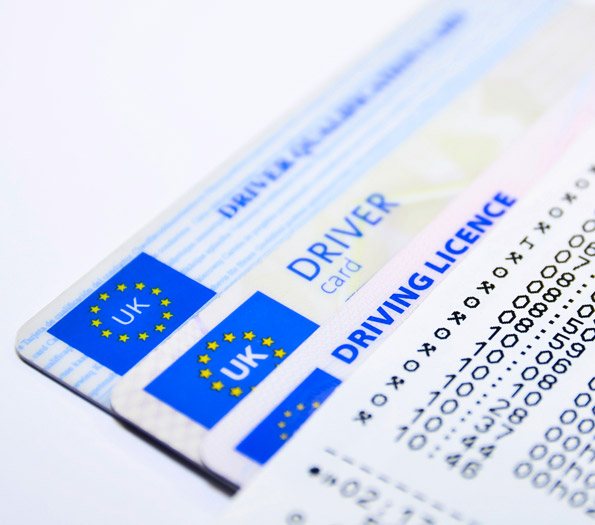March 13th, 2018 | Sterling
What Is a DVLA Report?

What is the first thing that comes to mind when you are asked about the different types of pre-employment background checks? The majority of people would answer that question by saying, “a criminal record check”. While the criminal record check is the most well-known background check, there are many other background screening solutions available to employers. Each type of check from education verifications to Right to Work Checks has specific practical considerations and compliance matters that must be followed. Each organisation is unique and requires unique solutions to allow them to hire with confidence.
An employment background check provides a detailed look at a new hire, giving organisations the insight they need to make an informed hiring decision. Sterling published “Background Screening in the UK-Best Practices to Make Informed Hiring Decisions”. The report looks at nine of the most common pre-employment checks in the UK, including DVLA Checks. The eBook details what each check entails, explains why employers conduct each check and provide some practical considerations that may improve a company’s background screening programme.
The “Background Screening in the UK” Report shares examples of red flags that have appeared in our data. Discrepancies pop up when the information provided by the candidate does not match what is found by the screening provider. Based on our background screening results, account managers appear more than twice as likely, at 36%, to have a red flag in their DVLA report compared to other employees.
What Are DVLA Reports?
Every day millions of vehicles are on the road transporting everything from livestock to electronics to large industrial pieces. Some drivers are on short day trips while others are long-haul drivers who travel across the country and the continent. For businesses looking for people to drive a company vehicle, chauffeur, entertain clients or operate machinery, it is important to investigate if their candidate might have an infraction that could affect their ability to operate the vehicle. Knowledge of a driving record is particularly important for positions that involve transportation of goods, use of a company vehicle, or representation of your company while driving.
A DVLA Report is a simple search on the driving licence of current employees or job applicants. The Driver and Vehicle Licensing Agency (DVLA) maintains the registration and licensing of drivers in Great Britain. They are also responsible for registering and licensing vehicles in the UK. The DVLA Report results identify all impaired driving charges, driving restrictions, speeding and other driving offences. These checks should be undertaken whether the candidate will be using their own vehicle for company business or have access to a company-owned vehicle.
Why Are DVLA Reports Important?
Before hiring, organisations must consider whether a DVLA Report is necessary for the position for which they are hiring. If the candidate is required to drive on company time, then a DVLA check should be performed on the applicant.
With easier access to technology, forged documents are on the rise and driving licences are often targets for fraud. Technology has made these forged documents more affordable and the internet has contributed to greater accessibility to them. With the readily availability of fake records, it is no longer sufficient to accept documents at face value – in fact, in some sectors/jobs over a third of DVLA Reports identify a red flag.
Third-Party DVLA Checks
A third-party background screening company, such as Sterling, will cross-reference names, aliases and dates of birth for a DVLA Report with information supplied on a criminal record check form. Sterling’s DVLA Reports show the results directly from the DVLA as well as act as a guide to deciphering the confusing coding provided by the DVLA.
A comprehensive DVLA Report via a screening specialist such as Sterling can help safeguard your company from the Corporate Manslaughter and Corporate Homicide Act 2007. Under this act, organisations can be found guilty of corporate manslaughter or homicide where negligent hiring practices could breach a duty of care the company owes to its employee and the public, including fatalities caused by an employee driving on company time. Sterling is compliant with the latest data privacy requirements and legislation, including changes to privacy that will be impacted when the GDPR goes into effect on 25 May 2018.
It is more important than ever for companies that rely on employees who will be operating vehicles to have thorough DVLA Reports. With many background screening options, companies need to determine which type of background check is the most important to protect their employees and businesses. Download a complimentary copy of our “Background Screening in the UK-Best Practices to Make Informed Hiring Decisions” eBook to find out more about the types of background screening in the UK.
This publication is for informational purposes only and nothing contained in it should be construed as legal advice. We expressly disclaim any warranty or responsibility for damages arising out this information. We encourage you to consult with legal counsel regarding your specific needs. We do not undertake any duty to update previously posted materials.

